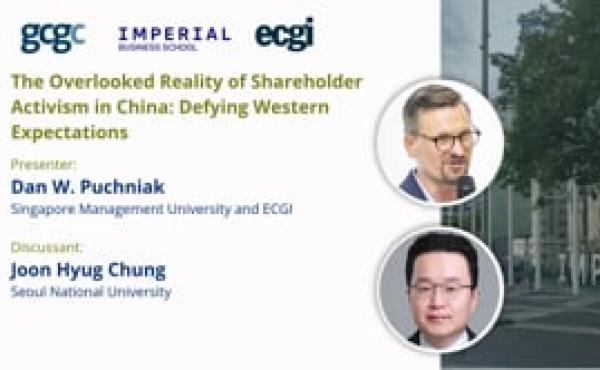The Overlooked Reality of Shareholder Activism in China: Defying Western Expectations
Key Finding
An unreported surge of shareholder activism in China, which defying Western expectations is driven by rules-based market forces
Abstract
Shareholder activism in China remains largely unexplored, despite the country having the world’s second largest economy. Using unique hand-collected data, we reveal that shareholder activism in China is thriving, with 156 major campaigns identified from 2007 to 2023, over two-thirds occurring in the last five years.
Contrary to Western assumptions, our empirical analysis finds no statistically significant difference in activist campaign success rates between state-owned enterprises (SOEs) and privately-owned enterprises (POEs). Private shareholders have successfully conducted activist campaigns against powerful state-owned “national champions” in over half of the cases. Conversely, over half of the campaigns by state-owned activists failed when targeting POEs.
Our regression analyses, coding activist shareholders and target companies based on political power suggest China has developed a rules-based market for shareholder activism with no evidence of systemic political interference, even when state actors are involved. In-depth case studies further support this conclusion, while illuminating a rare instance where political influence may have played a role in a sensitive case involving a national champion.
This overlooked rise of rules-based shareholder activism in China challenges prevailing Western narratives and provides new insights into Chinese corporate governance. Our findings suggest shareholder activism is emerging as an important force shaping governance practices in the world’s second largest shareholder market. This research is particularly timely and important as the influence of the Chinese Communist Party over Chinese corporate governance has become a major issue in the United States and one of global significance.





